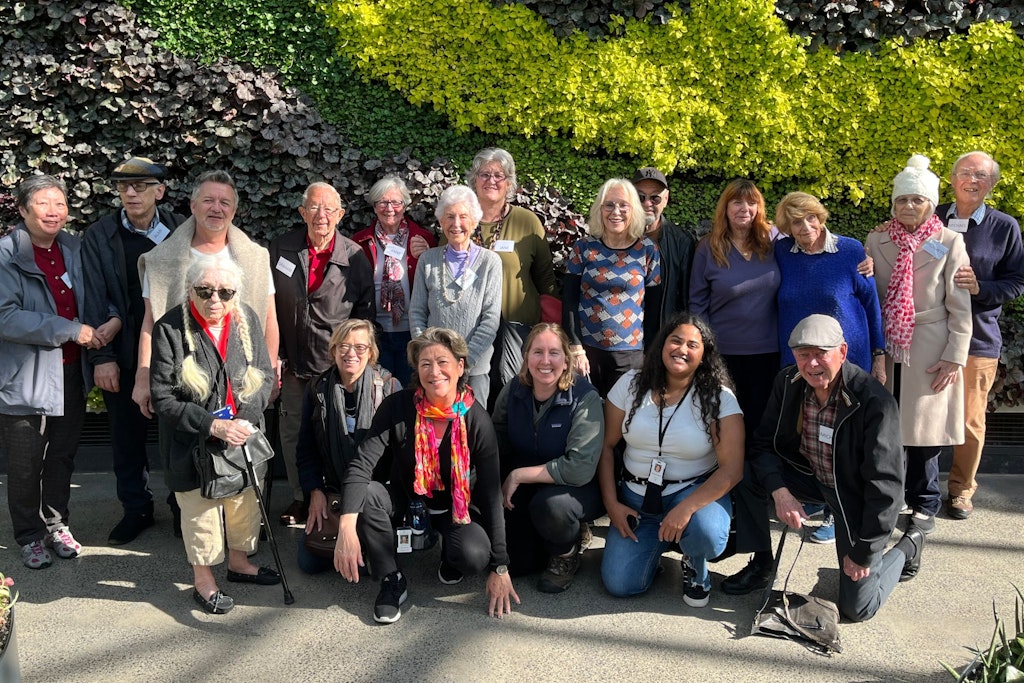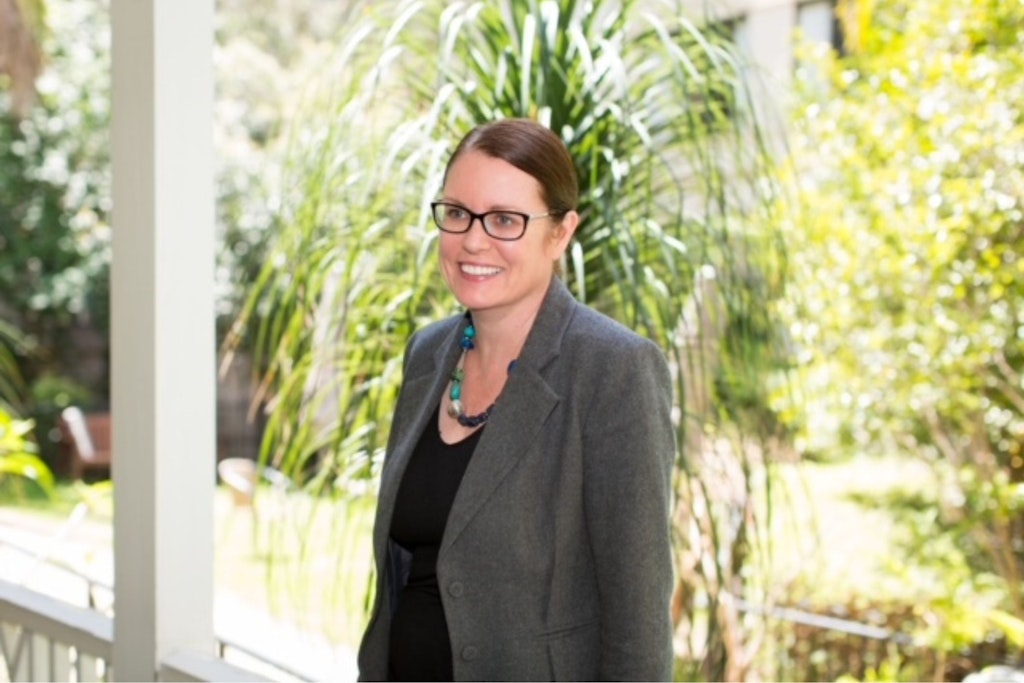Motivated by dignity, dementia care receives a holistic approach
Last updated on 4 October 2023

Sydney’s famous Horden Pavilion was an unlikely place for St Luke’s Care dementia choir to appear, especially at a TEDx event, and yet that’s where the group took to the stage just a few weeks ago. The community choir for people living with dementia and their carers showed no stage fright as they earned a standing ovation after singing Blue Moon and Always Look on the Bright Side of Life.
It was an emotional moment that captured the crowds’ hearts while showcasing one of the unique dementia support services the small not-for-profit independent healthcare provider offers in the Eastern Suburbs of Sydney.
Speaking to hello leaders during Dementia Action Week, St Luke’s Care Chief Executive Officer (CEO) Cindy Woods emphasised the emotional impact of the performance. In many ways, the choir’s performance is the perfect recognition of their holistic approach to care, but for the participants, it reflects just how meaningful and impactful the program is on a daily basis.
“Dementia, music and memory have this powerful connection. Music lights up emotional memories and helps reduce anxiety and depression, it helps with speech and just has an overall positive impact on those living with dementia and their carers,” Mrs Woods explained.
“The reports from the carers after they attend a session are that those living with dementia continue to be engaged, happy and relaxed for hours. They also find it’s an uplifting experience for them as well because everybody sings, the carers and those living with dementia, and for some of those participants it’s the highlight of their week which is just beautiful.”
The dementia choir is just one facet that encapsulates the strategic shift St Luke’s Care made in 2019 after 100 years of operation. Like many aged care operators, they saw a need to invest further in dementia support services, reflecting a growing trend in Australia towards enhanced care offerings that are more in line with modern expectations of aged care.
Mrs Woods said there was also a strong desire to connect the dots between aged care, home care, medical specialists, rehabilitation and prevention. Occupying the Potts Point campus with a private hospital, clinic, home and community services and Lulworth House Residential Aged Care meant they could launch themselves as a holistic campus for ageing Australians.
“We started with the word dignity and we decided that all ageing Australians deserved it. One of the areas we identified from our community consultation was the need for a prevention-first philosophy with more preventative health programs for those living in the community, as well as developing a dementia care pathway to provide a support framework for people living with dementia and their carers,” Mrs Woods added.

Dementia support that fosters community connection
What’s clear is that among the physical and cognitive benefits of dementia support services, a strong focus on socialisation and community connection is always important. A dementia diagnosis can often bring an end to relationships as the individual may socialise less as cognitive decline increases and abilities lessen.
Mrs Woods expressed her joy at the social impact of their Dementia Care Pathway which includes a physio-led Active Life Studio, Community Programs, the dementia choir and several social group events. All have garnered positive community feedback, especially the Community Programs that have seen participants visit the Royal Botanical Garden, Taronga Zoo and the Art Gallery of New South Wales.
“Our program in partnership with the Royal Botanical Garden promoted a connection with nature and sensory stimulation. The participants engaged in forest meditation, nature walks, gardening and craft activities. It was a structured two-hour program with lots of benefits,” Mrs Woods explained.
“The key to these programs is they’re respectful and delivered in a meaningful way where we are providing valuable education for both the person living with dementia and their carer. We focus on what they can do rather than what they can’t do.”
“As a result, we’re finding they’re more engaged, they’re relaxed and they’re showing fewer behaviours and the carers are finding it’s a great support for them. The carers have actually formed friendship groups themselves as a result of participating in these programs which has been fantastic to see.”
The best type of dementia care is engaging, innovative and connective. It also starts from the very beginning of a dementia diagnosis, not just when someone moves into a residential aged care home with limited independence. This is where a holistic approach incorporating physiotherapy, socialisation, cognitive thinking and creative pursuits is so impactful.
And as Mrs Woods explained, a focus on what people can do enables positive outcomes. Everyone benefits from community connections and creative pursuits in engaging settings like a botanical garden or on a stage. So, perhaps now is the perfect time to ask yourself what you can do to provide new opportunities and experiences for your residents or clients, particularly those living with dementia.